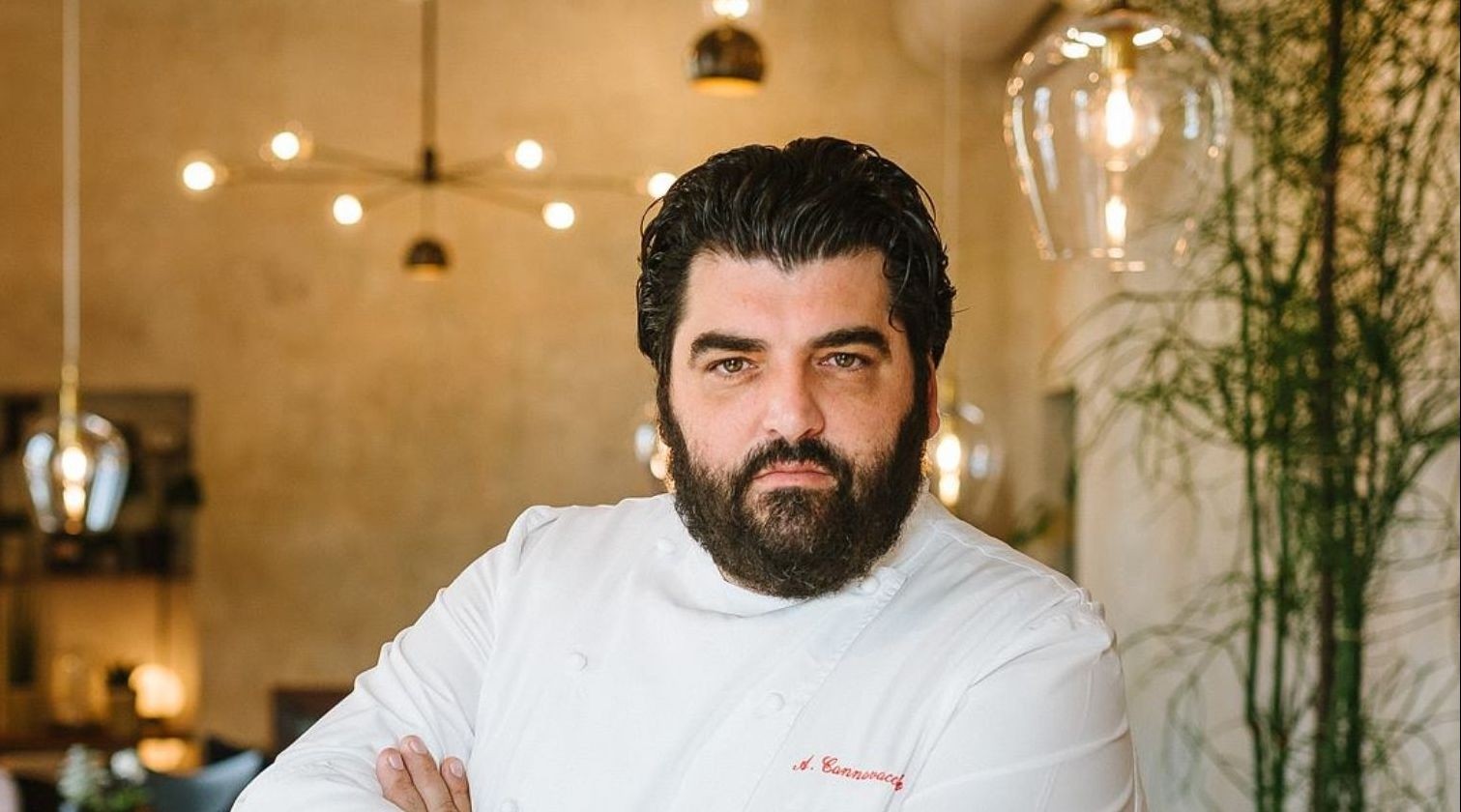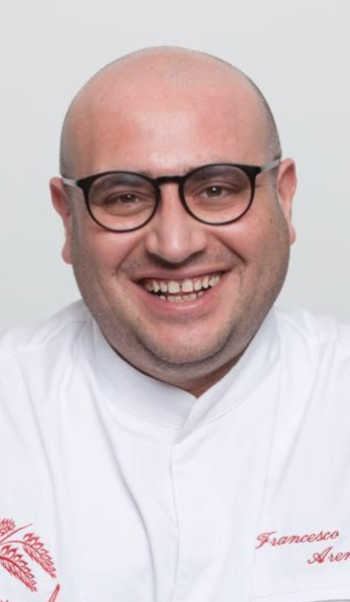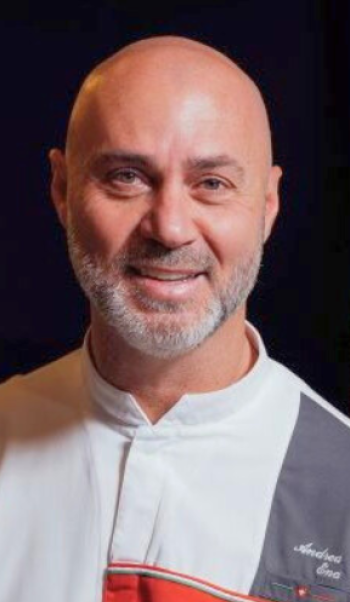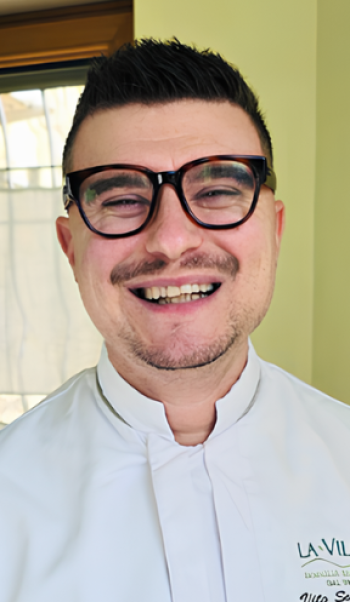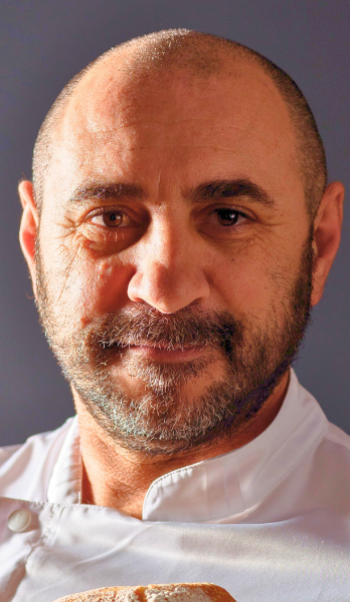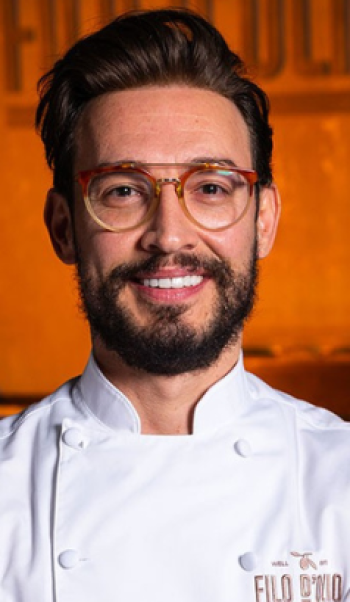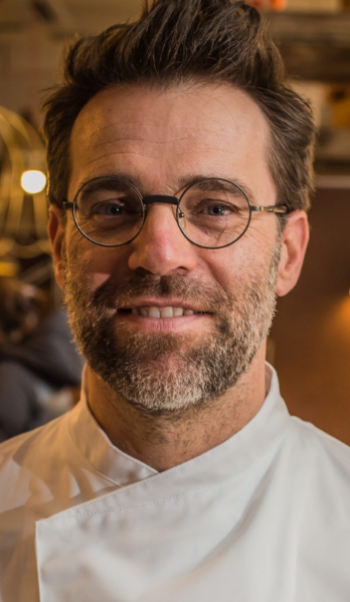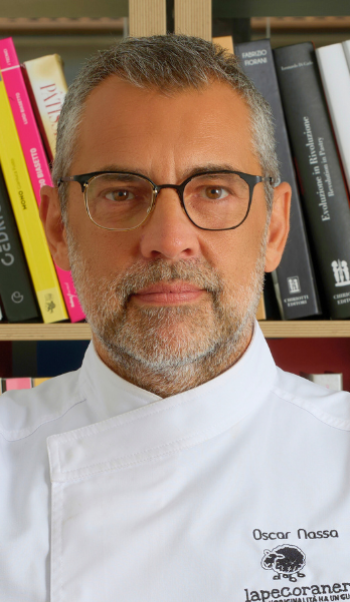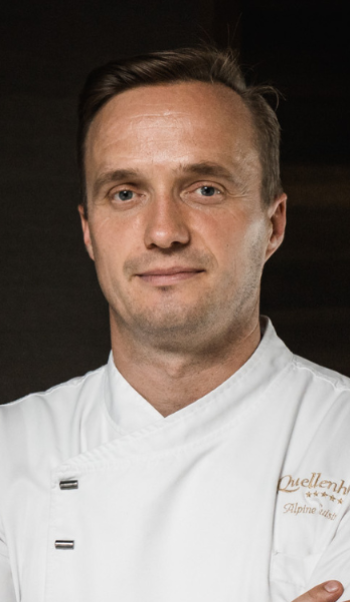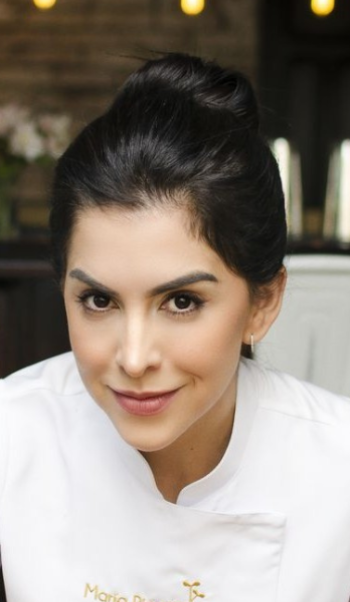The latest among the Three-MICHELIN-Star Italian chefs with "Villa Crespi," Antonino Cannavacciuolo has introduced into our cuisine a north-south contamination paradigm, with a pan-Italian flair, which has rapidly spread thanks to his managerial abilities that have multiplied his restaurants. He is also known for his skills as a trainer and mentor for many ambitious young students.
Biography
Antonino Cannavacciuolo was born in Vico Equense in 1975. His father Andrea, an amateur sculptor of nativity scenes, worked as a chef and teacher at the hotel school "Di Gennaro," where Antonino enrolled on his own initiative, despite his father's attempt to dissuade him. His father remained a reference point for him in his professional life and beyond. Cannavacciuolo credits his father with teaching him humility, passion, and dedication to work. "I started working in the kitchen at the age of thirteen and a half. At night, I would come home with blue arms and shoulders from the beating I got from a chef. My mom wanted to protest. My father said, 'If he hit you, it means you deserved it.' Today that chef would be arrested for abuse, but for me, it was a lesson."
After earning his diploma in 1993, he had his first experiences on the Sorrento Peninsula, followed by two internships at major French restaurants, the Haeberlin family's "Auberge de l'Ill" and Antoine Westermann's "Buerehiesel," both Three-MICHELIN-Star in Alsace. He also worked at Capri's "Quisisana" during Gualtiero Marchesi's consultancy, though he didn't have direct dealings with him. His kitchen apprenticeship was challenging and traditional. "My first task was to crack eggs: break them, separate the yolk from the white, whip them for the vanilla ice cream. I opened 800 eggs a day, to make 50 containers of ice cream to put on the fruit salad and wild strawberries. In the end, there was kitchen cleaning, sweeping the floor, emptying the warehouse." Then he was promoted to de-boning hams, twenty a day for the canapés.
After this challenging experiences he had already become friends with his future wife Cinzia Primatesta, working at the Approdo on Lake Orta. She is the one who went to visit him in Capri, and their love blossomed. Then, the professional and personal turning point came in 1999 when he took over the management of the Primatesta family's restaurant, "Villa Crespi," a splendid Moorish-style building in Orta San Giulio, on the shores of Lake Orta, as the chef patron. The first MICHELIN Star came in 2003, the second in 2006, and the final consecration in 2022. In the meantime, he was admitted among the Relais et Chateaux.
The credit goes to a kitchen with a strong identity, into which Cannavacciuolo pours his biography. He celebrates the marriage between the south and the north in a pan-Italian key, in an explosion of taste. Not surprisingly, the historic menu of "Villa Crespi" is titled "Itinerary from South to North Italy." The immediacy of the product is all Campanian. "In the kitchen, as in life, you must use real ingredients, otherwise our dishes will only be imitations of someone else's." The connection to tradition, always present in inspirations, is equally essential.
But Cannavacciuolo is a versatile chef with remarkable entrepreneurial skills. Over the years, he has expanded his ventures: in 2015, the "Cannavacciuolo Café & Bistrot" in Novara arrived, open all day, from breakfast to after dinner; in 2017, the "Bistrot Cannavacciuolo" in Turin. Then the opening of two resorts with fine dining: "Laqua Countryside" in Ticciano, a fraction of Vico Equense, and "Laqua Vineyard" in Casanova di Terricciola, in the province of Pisa. All of these restaurants earned MICHELIN Stars from 2018 to 2022, bringing the total to 7 MICHELIN Stars in 2023.
He hasn't shied away from television, where he debuted in 2013 with the first edition of Kitchen Nightmares, then became a regular presence on Masterchef as a judge and created his own format, 'O mare mio, traveling among various coastal cities. He is also a consummate talent scout, credited with launching a host of young talents into Italian gastronomy, including Pasquale Laera and Cristoforo Trapani. "I always tell my guys to surpass themselves, to improve my recipes. If they can do it, all the better. Learning the trade is the most important thing and the only way is to work."
Cover Photo: @fotografia FTfoto
